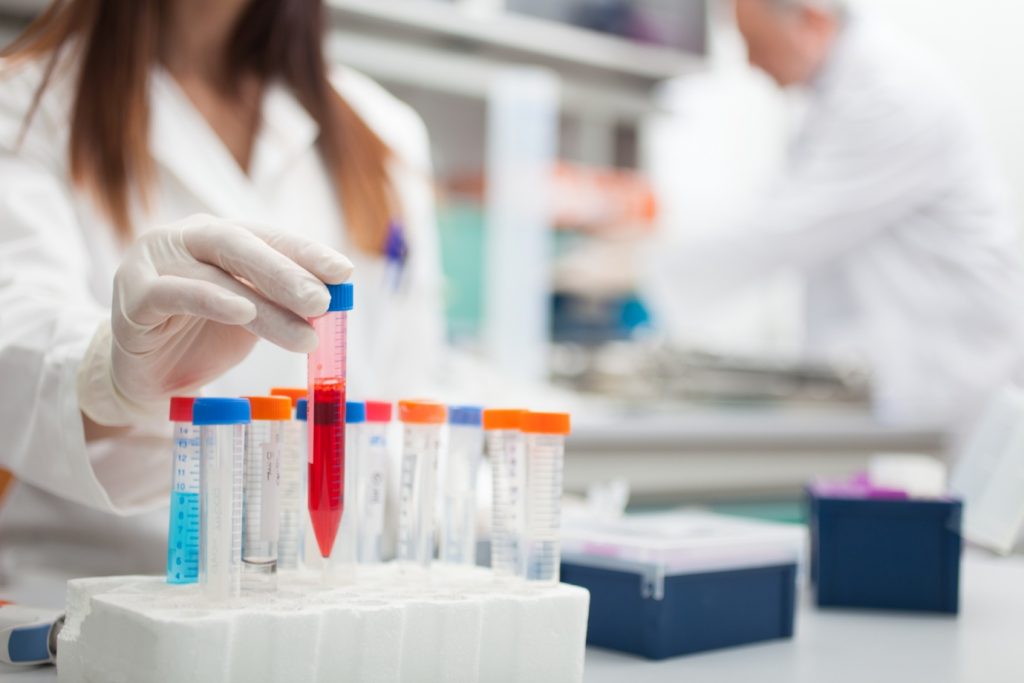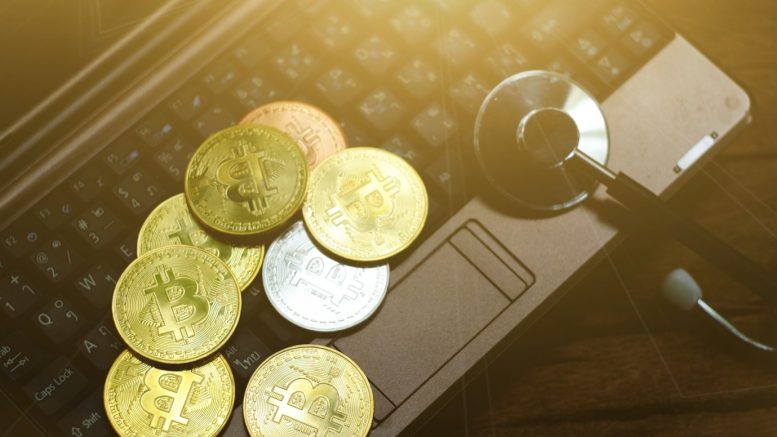Health spending in developed countries amounts to roughly nine percent of GDP. Some countries spend more than others, though, and the US, for instance, will spend almost 20 percent of the country’s GDP on healthcare by 2025. However, that probably won’t lead to major improvements in people’s health. In fact, much of that has to do with the rising cost of hospital care and physician services, as well as with increasing spending on prescription drugs, which rose from $121 billion in 2000 to $360.2 billion in 2018. What’s more, developing a new drug has become an extremely expensive and often inefficient process that lasts up to 12 years and costs anywhere between $1 billion and $2 billion.
Making this process more efficient and cost-effective could save billions of dollars, and blockchain is one of the technologies that could potentially deliver this change. So, it’s no wonder that the market value of blockchain tech in healthcare is set to reach $5.61 billion by 2025.

The promise of simpler and faster clinical trials
Any effort to improve the life sciences and healthcare industry usually revolves around patient data. Drug developers, doctors, and government agencies all produce and store valuable information, whether it’s clinical trials data or healthcare records. But these vast datasets are scattered and unsynchronized due to a lack of trusted data-sharing mechanisms. Ted Mlynar, a partner at the international law firm Hogan Lovell, suggests turning to blockchain instead. With its distributed ledger system and tamper-proof transactions, this technology could improve healthcare in many ways.
Researchers could, for instance, place the structure and protocols of clinical trials on blockchain so that third parties, such as regulators, could verify whether the original design was followed. Furthermore, timestamped blockchain transactions can prove that drug developers didn’t change the analysis mid-trial, while multiple parties like managers, marketers, and physicians could access the information in real time. And once the study is completed, the verifiable audit trail could be submitted to regulators and researchers that want to reproduce the study. This is just a glimpse of the many ways in which blockchain could streamline and simplify clinical trials that account for around 20 percent of drug development costs.
Giving patients ownership over their medical records
Blockchain-based medical records are yet another way in which healthcare can be improved. Instead of having medical data centralized at the level of corporations or hospitals, it could be stored in blockchain with patients approving who can access it. Patients could also expand their medical data with additional information on their genetic profile, demographic status, and potentially harmful behavior to enable doctors to deliver fully personalized care.
For instance, Greg Matthews, an expert on digital trends in healthcare, argues that “The dream of personalized medicine looked like an almost-insurmountable problem 10 years ago because of technical challenges in linking data types and using them to find patterns across massive amounts of data.” As he explains, “Blockchain could be at the foundation of the solution, with the patient having ultimate control over their data and how it’s used”.
Challenges on the road ahead
The adoption of blockchain, however, might be slowed down due to regulatory and data privacy concerns. For example, countries have various rules on how medical data can be secured, stored, and who can access it. Any major change in that aspect would require government approval. Besides that, healthcare and pharmaceutical companies might be reluctant to share clinical trials data that they perceive as trade secrets and intellectual property. One way to address this challenge, as Mlynar explains, is to develop “common data standards that can be applied broadly”.
Blockchain solutions are tempting, and more than 60 percent of executives in health organizations claim they’re planning to implement them, although most are unsure how to actually go about that. Nevertheless, a future in which blockchain could make drugs cheaper and medical systems more efficient is very much within our reach.

Author: Richard van Hooijdonk
Trendwatcher, futurist and international keynote speaker Richard van Hooijdonk takes you to an inspiring future that will dramatically change the way we live, work and do business. His inspiration sessions have been attended by over 420,000 people. Richard is a regular guest at radio and television programs. With his international research team, he investigates tech trends like robotics, drone technology, autonomous transport systems, Internet of Things, biotech, nanotech, neurotech, blockchain, 3D and 4D printing as well as augmented and virtual reality and their impact on various industries. Findings are published weekly in the form of compelling articles, e-books and white papers.





